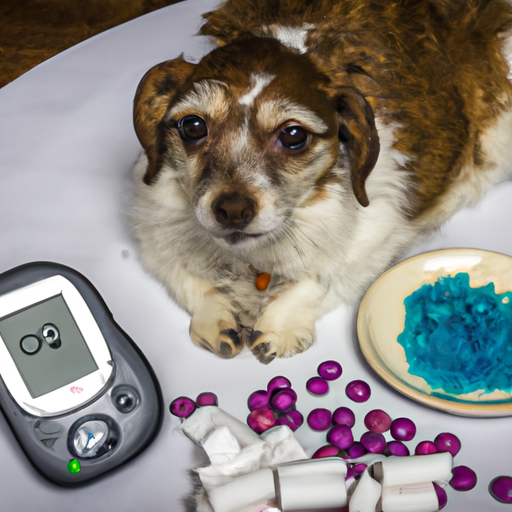As a caregiver, it’s crucial to understand the health issues your beloved canine companion may face. Today, we’re going to delve deep into one of the more common health conditions that affect dogs: diabetes.
H2 – Understanding Diabetes in Dogs
The first step in protecting your dog’s health is understanding what’s at stake. Canine diabetes is a chronic disease that affects the pancreas, a vital organ responsible for producing insulin. This hormone controls the amount of glucose (sugar) in a dog’s bloodstream.
When a dog has diabetes, their body either doesn’t produce enough insulin, or it’s unable to use it effectively. This results in high levels of sugar in their blood, which can lead to a host of health problems.
H2 – The Root Causes of Canine Diabetes
Now that you understand the basics of the disease, let’s look at what causes diabetes in dogs:
- Genetics: Some breeds are more prone to diabetes, such as Australian terriers, beagles, and dachshunds.
- Age and Gender: Older, female dogs are more susceptible to the disease.
- Obesity: Excess weight can lead to insulin resistance, a major risk factor for diabetes.
- Diet: A high-fat diet can contribute to the onset of diabetes.
H2 – Recognizing the Symptoms
Early detection can make a significant difference in managing your dog’s diabetes. Keep an eye out for these symptoms:
- Increased thirst and urination
- Unexplained weight loss
- Excessive hunger
- Fatigue
- Cloudy eyes, in advanced cases
H2 – Diagnosis and Treatment
If you suspect your dog may have diabetes, take them to the vet for a thorough examination. The vet will run blood and urine tests to confirm the diagnosis.
Treatment typically involves managing diet, encouraging regular exercise, and administering daily insulin injections.
| Action | Purpose |
|---|---|
| Regular Vet Visits | To monitor your dog’s condition |
| Insulin Injections | To regulate blood sugar levels |
| Diet Management | To maintain a healthy weight and control sugar intake |
| Regular Exercise | To help the body use insulin more effectively |
H2 – Frequently Asked Questions
- Q: Can diabetes in dogs be cured?
- A: No, but it can be managed with proper care and treatment.
- Q: How often should I take my dog for check-ups?
- A: At least twice a year, more often if your dog has diabetes.
- Q: What should I feed my diabetic dog?
- A: A diet high in fiber and low in fat and simple sugars is ideal.
- Q: Can my dog live a normal life with diabetes?
- A: Yes, with proper management, your dog can continue to lead a happy and active life.
We hope that this guide has given you a better understanding of canine diabetes, its causes, symptoms, and treatment. Remember, as a caregiver, your role is pivotal in ensuring your dog’s health and happiness.



